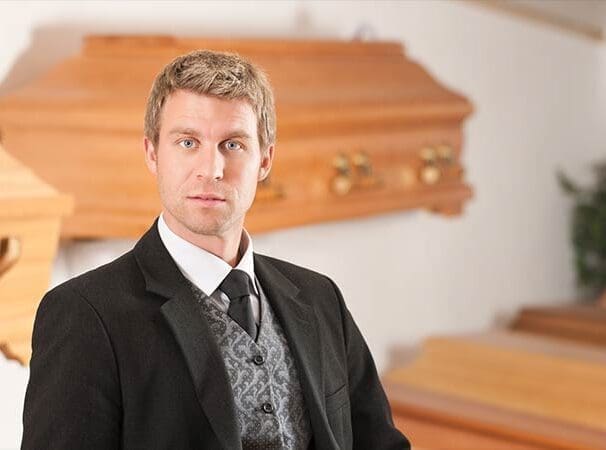HealthProviders DB is a comprehensive database of healthcare providers, including a complete directory of all Funeral Directors.
Other Service Provider Healthcare Taxonomy Code 176P00000X
As of today, the following are the total number of Funeral Directors nationally, in your State, and near your location.
Select a State below to view the list by State. Additionally, you can narrow the list by city, among other options, from the Filter Panel, which you can open by clicking the vertical ellipses ⋮ in the upper right corner of the app.
Alaska – Alabama – Armed Forces Pacific – Arkansas – American Samoa – Arizona – California – Colorado – Connecticut – District of Columbia – Delaware – Florida – Federated States of Micronesia – Georgia – Guam – Hawaii – Iowa – Idaho – Illinois – Indiana – Kansas – Kentucky – Louisiana – Massachusetts – Maryland – Maine – Marshall Islands – Michigan – Minnesota – Missouri – Northern Mariana Islands – Mississippi – Montana – North Carolina – North Dakota – Nebraska – New Hampshire – New Jersey – New Mexico – Nevada – New York – Ohio – Oklahoma – Oregon – Pennsylvania – Puerto Rico – Palau – Rhode Island – South Carolina – South Dakota – Tennessee – Texas – Utah – Virginia – Virgin Islands – Vermont – Washington – Wisconsin – West Virginia – Wyoming
Medicare
The following are the total number of Funeral Directors who accept Medicare in your State, the number who have opted out of Medicare, and the total number excluded from participation in Medicare nationwide.
The diagram below shows all the Funeral Directors across the country, represented by blue bubbles. The larger the bubble, the greater the concentration of providers in that area. Red bubbles represent Medicare-excluded providers, with the larger bubbles indicating a higher percentage of excluded providers in that region. You can change the bubble size to be based on exclusions from the Size menu.
What do Funeral Directors do?
Funeral Directors coordinate and oversee all aspects of funeral and memorial services.
This includes helping families arrange viewings, services, and burials or cremations; preparing the deceased; handling legal documents such as death certificates; writing obituaries; and providing ongoing support and guidance to grieving families.
They are responsible for managing the funeral home’s operations and ensuring that the services are carried out according to the family’s wishes.
Arranging Services
Consulting with families: Funeral directors meet with families to discuss their preferences for burial or cremation, casket or urn selection, and the overall tone and style of the services.
Planning logistics: They schedule dates, times, and locations for services such as viewings, funerals, and receptions, and coordinate with clergy, pallbearers, and other service providers.
Liaising with vendors: They work with florists, cemeteries, crematories, and other vendors to ensure all necessary arrangements are made.
Caring for the Deceased
Body preparation: Depending on the specific role and services, a funeral director may be responsible for embalming, grooming, dressing, and casketing the deceased.
Transportation: They arrange for the retrieval and transportation of the body from the place of death to the funeral home, and then to the burial or cremation site.
Handling Administrative and Legal Matters
Preparing death certificates: Funeral directors are responsible for filing necessary legal documents, including death certificates and permits.
Writing obituaries: They assist families in writing and submitting obituaries to newspapers.
Managing paperwork: They also handle family-related paperwork for pensions, insurance policies, and annuities.
Providing Support and Guidance
Personalized services: They help families create unique experiences by incorporating the deceased’s hobbies, passions, and final wishes.
Emotional support: Funeral directors provide ongoing counseling to bereaved families and friends during the complex grieving process.

